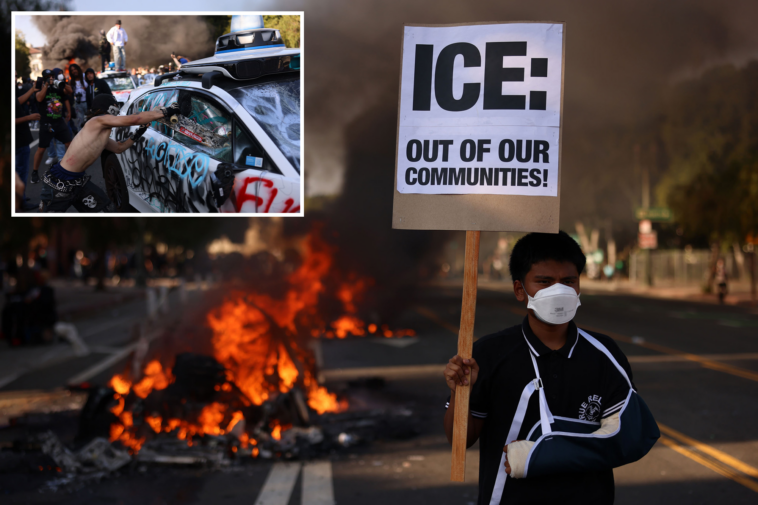Anti-ICE protests that rattled Los Angeles will cost taxpayers in the City of Angels a whopping $32 million, according to newly released data.
The eye-watering sum includes the cost of police response, emergency services, cleanup and public property damage resulting from federal immigration protests that have rattled the city, LA City Controller Kenneth Mejia revealed in a post on X.
Some $29.5 million of the costs come from the LAPD’s response to protests, “including citywide tactical alert costs,” Mejia said, sharing a graph breakdown of the taxpayer funds.
Another $1.4 million will be used for clean-up and public property damage, according to the post.
The remainder of the money includes funds set aside for the Los Angeles Fire Department, street services, general services and the Public Works Board.
Downtown LA has become the epicenter of anti-ICE riots in response to President Trump’s crackdown on illegal immigration.
Since June 8, the LAPD has made roughly 561 arrests related to protests, cops said, according to KTLA.
More than 200 people were arrested on June 10 alone after Mayor Karen Bass instituted a curfew in Los Angeles.
“The most explosive escalation of tensions between demonstrators and police since the height of the Black Lives Matter movement in 2020 is currently unfolding in Los Angeles over Trump’s ‘mass deportation agenda,’” said Kieran Doyle, with Armed Conflict Location & Event Data, a group that tracks civil unrest and wars.
Not included in the LA estimates is the cost to US taxpayers.
The Pentagon revealed earlier this month that President Trump’s decision to deploy the National Guard and Marines to LA to quell the unrest could cost up to $134 million.
The White House sent 4,100 National Guard troops and 700 Marines to the city to protect officials and federal buildings.
The Guard was also deployed to the city during the 2020 George Floyd riots, which saw 8,000 troops sent in.
And the Guard was sent into LA in 1992 to enforce curfews during the Rodney King riots.
Additional reporting by Jorge Fitz-Gibbon



